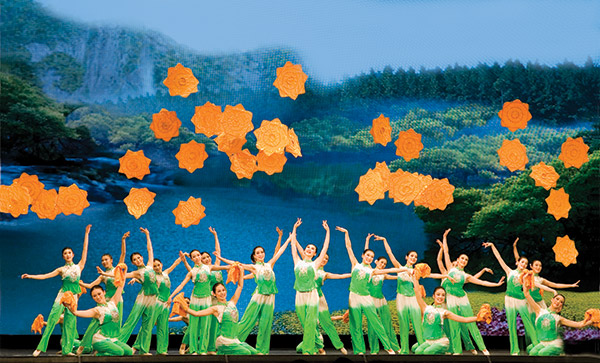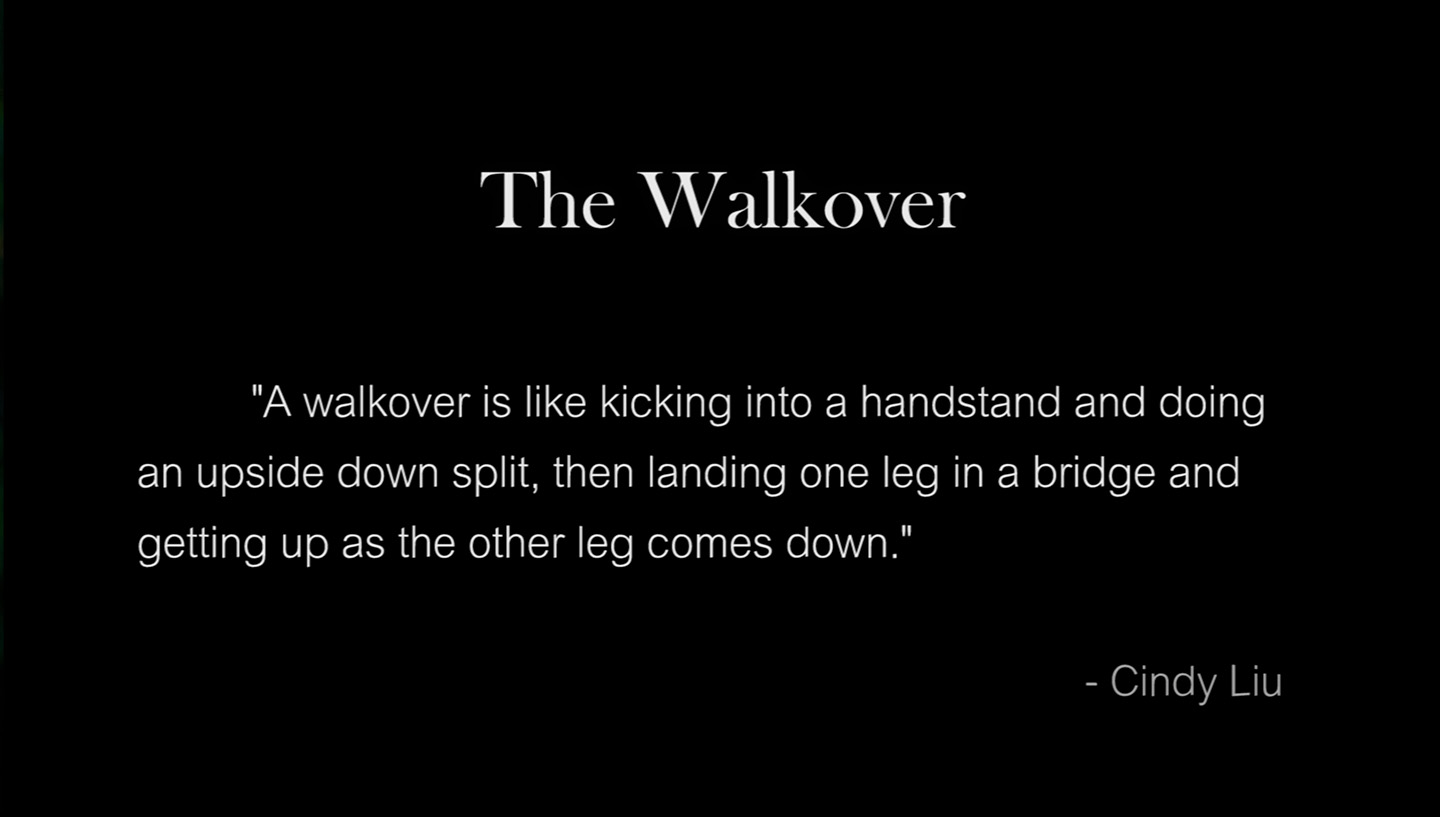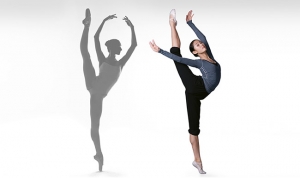In each year that we have a handkerchief dance, it is among the best-loved pieces in the show. That’s probably because of its bursts of vibrant color and hanky spinning, twirling, and tossing.
This past season’s handkerchief dance was called Handkerchief Blossoms, and I performed it in last year’s piece called An Early Spring. Both these recent dances hosted a thrilling technique specific to this dance—the boomerang hanky catch.

As you may have guessed, this requires throwing the handkerchief into the air in such a way that it returns to the thrower like a boomerang. For us, it’s one of the riskiest and hardest techniques to perform during the show. It actually wouldn’t be so hard, if we didn’t also have to perform a walkover before catching the handkerchief.
Still, if you do a fast walkover and have a trained, stable throwing angle, success is not unattainable. The tough part is doing it to live orchestra music, lights in your eyes, in front of an audience with a racing heart and sweaty hands. Any slight change in the throwing angle can be calamitous.
The Basics
Let’s start with the walkover. It actually has little to do with walking over anything. A walkover is basically like kicking into a handstand and doing an upside down split, then landing one leg in a bridge and getting up as the other leg comes down. It’s not that hard, as long as you can split your legs 180 degrees and touch the floor bending back the other way.
As for the hanky catch, I can't count the number of times stagehands have stopped to stare at us practicing this. They usually have this astonished look on their faces before turning to the next guy and saying something like, “You wanna try that, Bob?”
Critical to success is the throwing angle. Just like a pitcher’s release point on a curveball can make the difference between a knee-bending strike and a hanger, the release point on a hanky makes the difference between it coming back to you and its landing on the glockenspiel.
The hanky should leave your hand and soar flat, but climbing at a relatively steep angle. This will make it come back like a boomerang. Of course, once you let it go and do the walkover, you completely lose sight of it. You just trust it’s flying on course, and then flip back up to find and catch it.
You might wonder how many times we had to practice to get it right. Well, I caught something like 1,000 successful ones before I did it on stage for the first time in 2010— that's excluding the few hundred I didn’t catch. By now, most of us who perform this technique have done the boomerang hanky toss-catch over 5,000 times, including more than a couple hundred times in live shows.
Don't try this at home. But if you really, really want to, you could try it in your backyard, replacing the walkover with a cartwheel and the special handkerchief with a ball, a frisbee, or… a boomerang.
Let me know if there’s anything else you would like me to write about. Till next time!
Cindy

Cindy Liu
Principal Dancer
01 de junho de 2015






